Contrary to popular belief, Australian high school and university students aren’t actually using AI to cheat in exams, tests, or essays.
The data comes from YouthInsight, an Australian youth-focused research agency. YouthInsight recently conducted a survey asking 576 Gen Z youths aged 14 to 26 representing students across high school, TAFE, college, university, as well as the professional sector about their perception and use of AI tools such as ChatGPT.
The results, per the survey, was that Gen Z is apparently “ready to accept an AI future.” 68% of respondents say that AI is here to stay, and 65% have used at least one AI tool at the time of taking the survey.
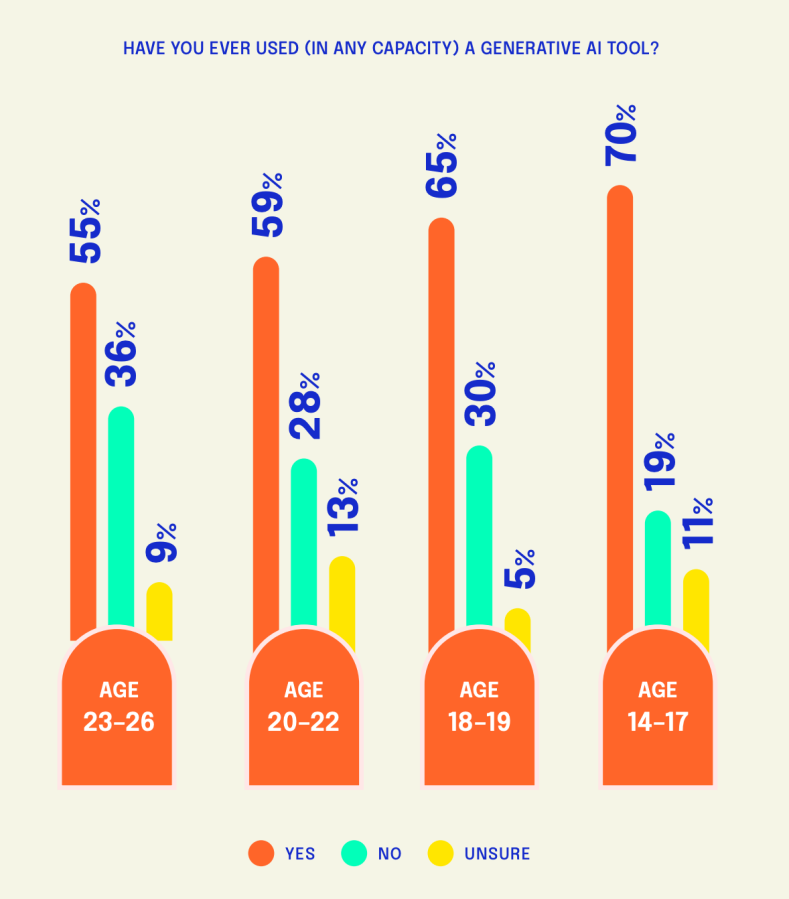
One in two are concerned about AI’s impact in everyday life. Many are even “reconsidering their study and career pathways due to potential job displacement,” while others are considering pivoting to the technology industry to keep up with the times.
Nope, not for plagiarism
Perhaps the most surprising part is that Gen Z Aussie students aren’t using AI tools to cheat their way to an A grade in school. According to the survey, 50% of Gen Zs use AI to “experiment with the tool and for help with their schoolwork or study”, while 20% of Gen Zs use it for “conversation.”
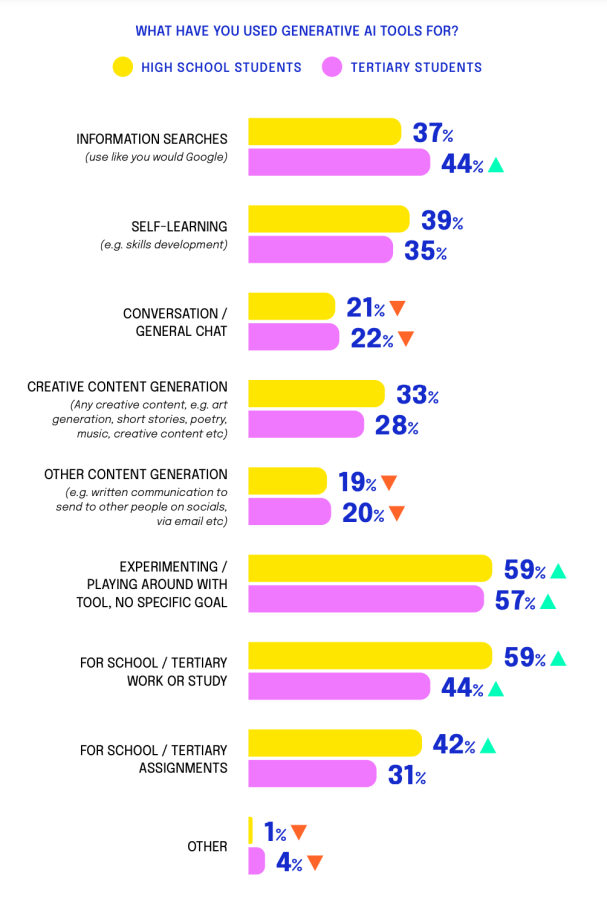
Students in tertiary education institutions use AI tools primarily for information searches (44%), experimenting or playing around with them (57%), or general work or study that’s unrelated to assignments (44%). On the other hand, students in high school are more likely to be mucking around with AI tools “with no specific goal” (59%).
With Australian state schools blocking ChatGPT over fears of it being misused for plagiarism, are students really the conniving, tech-savvy little goblins we think they are? No, according to the report.
71% of respondents say they have never, and would never use AI tools to plagiarise. 12% of respondents say they have, but would not in the future. Only a wee 9% of students who know no fear say they have used AI to cheat, and would again in the future.
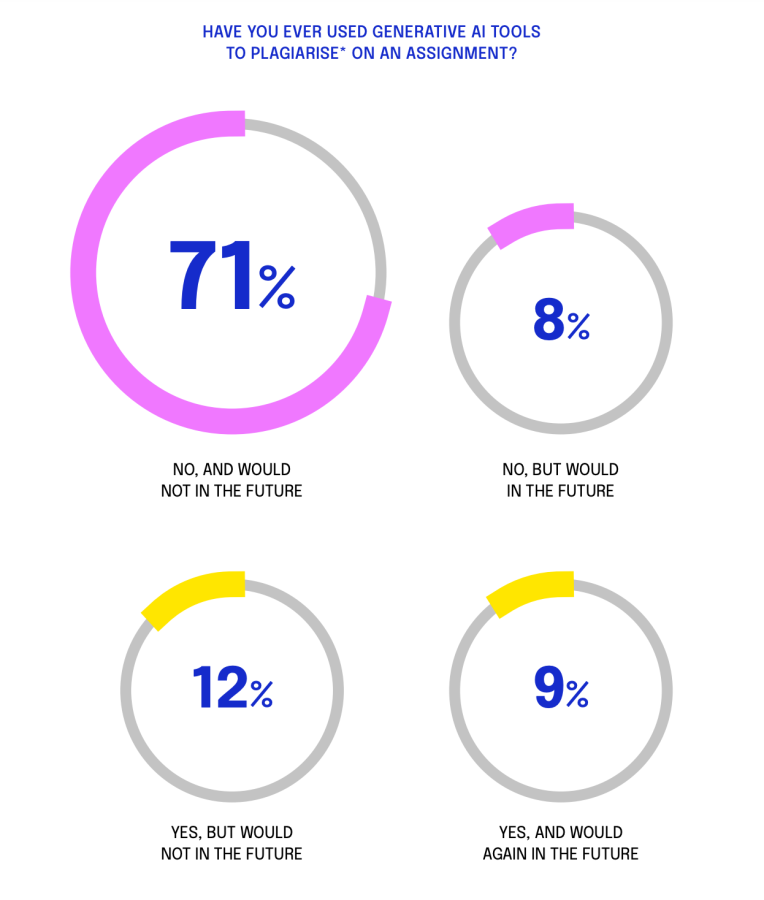
“Our education system is framed around a ‘deficit model’ in the sense that educators often think: ‘how do we prevent students from doing this?’,” Dr. Anna Denejkina, Research Director for YouthInsight, tells The Chainsaw.
“The education system we have created is pushing students to engage in things like cheating and plagiarism, and that is a systemic issue that needs to be addressed.” Dr. Denejkina explains.
AI tools that are not ChatGPT? Never heard of them.
Unsurprisingly, ChatGPT is the most popular AI tool among Gen Z respondents with 49% using it “regularly or sometimes.” Across all genders and age groups, ChatGPT was the favourite AI tool compared to others like Microsoft’s Bing.
Speaking of other AI tools, Gen Zs have never heard of the majority of them. The report says that most participants reported not having heard of AI tools including: Midjourney (76%), Stable Diffusion (79%), Bard (78%), ChatSonic (80%), Chinchilla (85%), LLaMA (86%), YouChat (76%) or Jukebox (81%).
This shows that despite the media’s mainstreaming of AI, most information about alternative AI tools is yet to reach a younger audience.
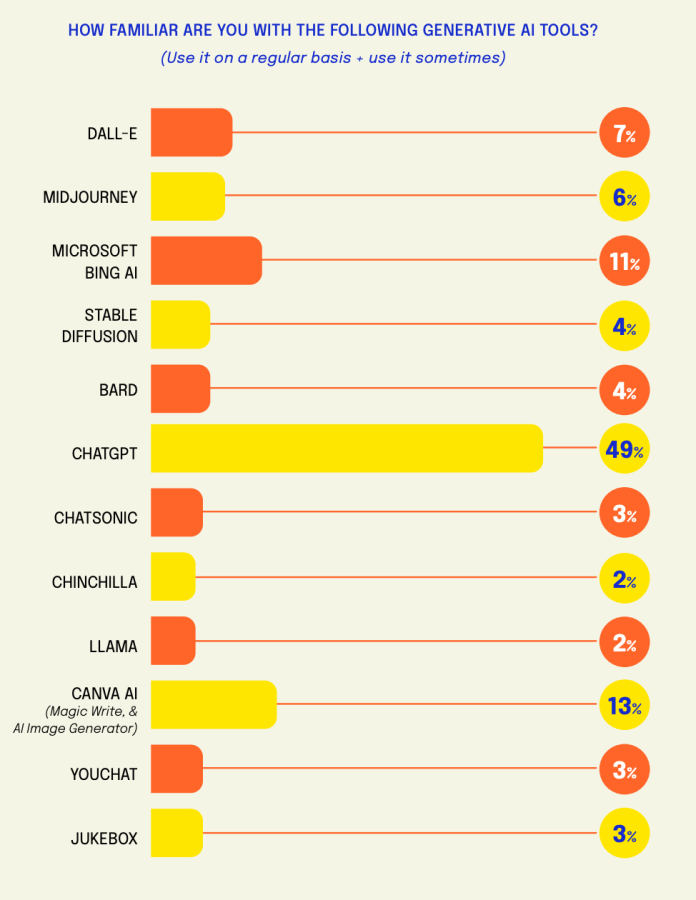
Gen Z still aren’t confident in using AI
… which is a little surprising, considering that they are often seen as the most tech-savvy group.
Overall, 53% of Gen Z report being “somewhat confident” in using AI, and 35% say they are “not at all confident or not very confident.” When asked to rate their AI skills, men (74%) report being more confident than women (56%).
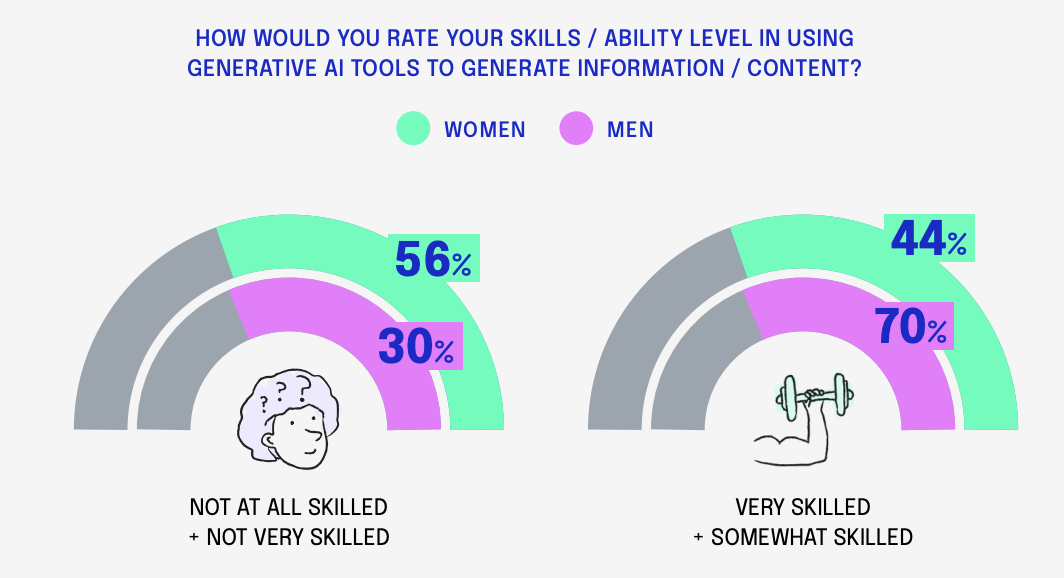
“Right now, in the education sector, we have an opportunity to really support everyone in developing their skills and confidence in using Generative AI,” Dr. Denejkina says.
“Otherwise, a few years down the track, we will be asking questions like: ‘Where are the prompt engineers?’ In STEM at the moment, we see one particular gender and one cultural background being so prominent, but what about minoritised communities, women, and non-binary people?” she explains to The Chainsaw.
… and they wish they were taught more about it
With AI use becoming more prevalent in the workplace and now a skill that some employers are looking for, 88% report that it is important for young people to develop skills to use AI effectively.
Many Gen Zs agree that AI’s impact will be nuanced, bringing both positive and negative impacts. “Efficiency, help and productivity were seen as some of the top positive outcomes of Generative AI tools at work, while dependence and job displacement were seen as the negative implications,” noted the report.
“AI is like any other learning tool that supports skills development. Similar to Google, similar to the calculator,” Dr. Denejkina tells us.
“With the majority of public schools banning AI, while some private schools embrace the technology in their teaching, we’re running the risk of creating further inequalities. As our research indicates, gender also has a play in the confidence levels of young people when it comes to AI. The education sector is absolutely responsible for training students in this new skill set and building up their confidence.” she further explains.





